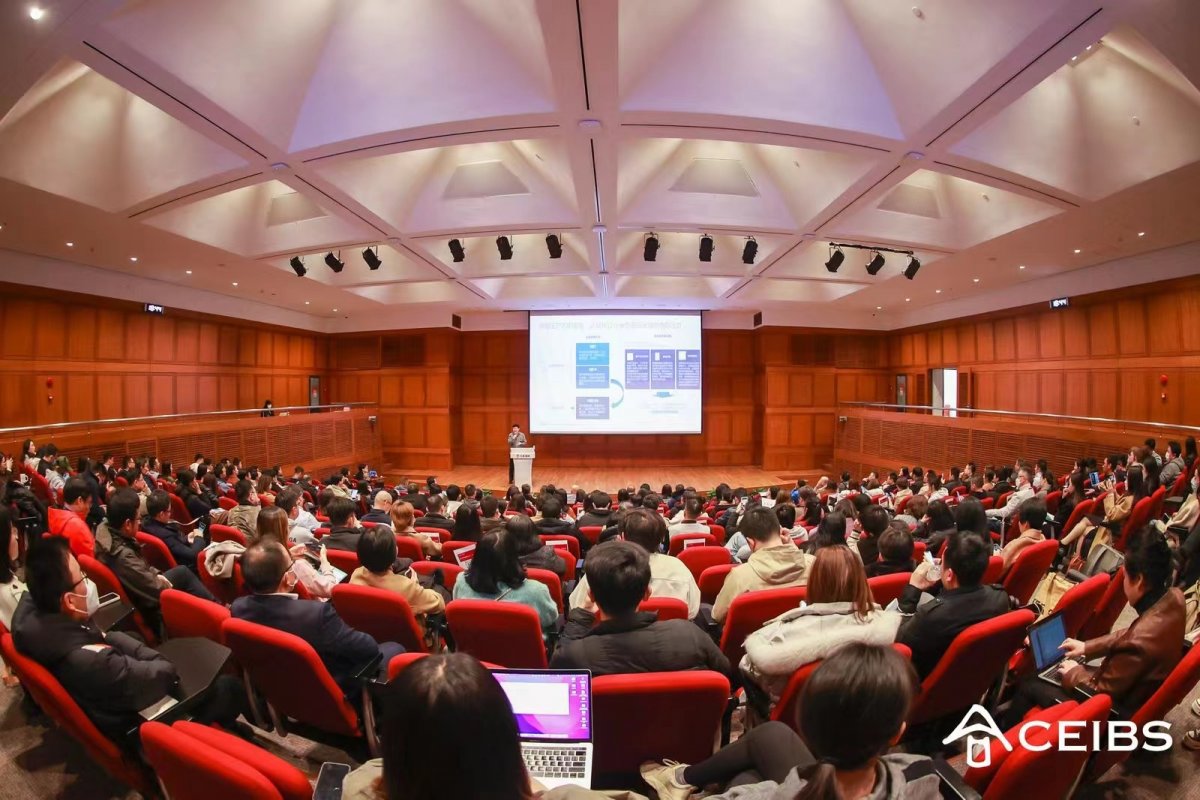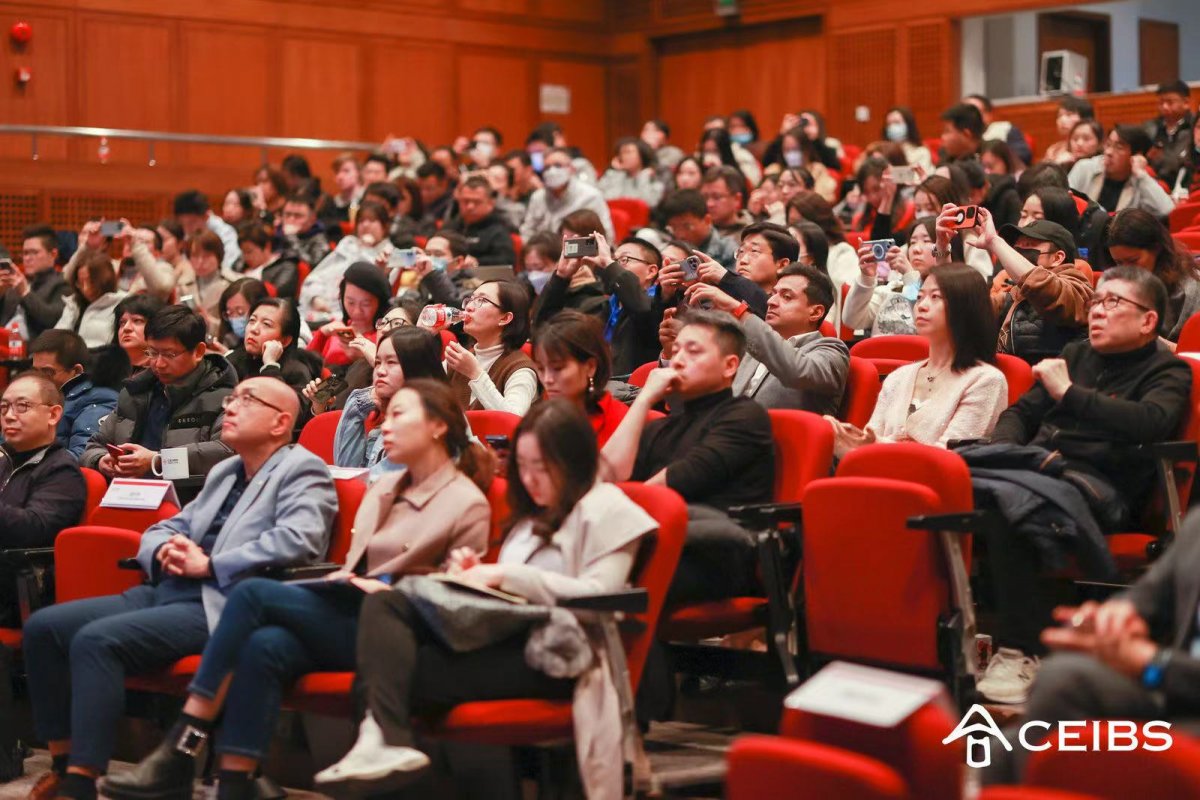Building companies’ core competencies in digital transformation
March 2, 2023. Shanghai – Companies need to build core competencies to stand out from their competition in digital transformation, 4Paradigm Co-Founder and Chief Architect Shiwei Hu told a CEIBS Executive Forum audience this evening.
During the offline event, Mr. Hu identified next-generation enterprises and discussed how they can seize the opportunities brought by digital transformation.
“Next-generation enterprises are those who can excel with excellent product and service quality, greater operational efficiency and productivity, and faster expansion rates within a short period of time,” Mr. Hu said.
One example is Chinese fast-fashion online retailer Shein, he noted. Known for its ultralow prices and a vast selection of fashionable clothing, Shein beat out its competitors with small batches of production, low costs and fast delivery by leveraging data science and efficient supply-chain management.
“For any company that wants to prevail in future market competition, they should first identify their unique advantages in the industry chain and control as many factors as possible. They also have to think about the competition between different industry chains rather than single companies,” he explained.
As a Chinese artificial intelligence technology and service provider, 4Paradigm helps enterprises improve work efficiency while reducing risk and achieving greater commercial value.
“The main purpose of adopting digital technologies is to improve organsational management and operational efficiency, rather than to upgrade a single business,” he continued. “Therefore, companies should transform themselves into ones that can quickly experiment and iterate.”
That said, Mr. Hu further pointed out that data-driven strategies, competitive costs in supply chains, and rapid iterative efficiency are three essentials needed to enhance a company’s core competitiveness and make it irreplaceable in the market.
When it comes to building iterative systems for next-generation enterprises, Mr. Hu suggested that companies should start with developing digital technologies and capabilities to reshape operations and management model.
“Digital transformation is, in essence, a transformation in organisational management thinking powered by artificial intelligence [...]. It involves not only reducing costs and improving service efficiency, but also putting in place a closed-loop system involving strategy, tactics, execution and evaluation,” he said, arguing that traditional ‘pyramid’ organisational structures often present companies many challenges and lead to undesirable results due to limitations at different management levels.
“In the past, business decisions were made by humans, but now AI technologies that are more capable of iterating strategy models than humans have made it possible to improve execution efficiency,” Mr. Hu explained.
Ultimately, he concluded, that the digital transformation is a process where companies shift from a people-centred system to a human-AI collaborative decision-making system. When digital transformation brings about qualitative change, an enterprise will stand out as one that can address industrial deep-seated problems using digital and intelligent technologies.

















